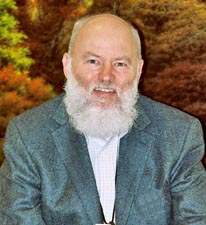Description:
Anxiety disorders are the most prevalent of all psychiatric conditions—the DSM IV includes ten distinct anxiety disorders, in addition to anxiety “not otherwise specified.” In this workshop, Jeff Brantley will discuss the physiological and cognitive dimensions of the experience of anxiety, and illustrate how mindfulness — nonjudging, present-moment-centered awareness — can be practiced and applied to the experience of anxiety to help reduce its impact and promote greater resiliency and happiness. Brantley describes the importance of approaching mindfulness, as more than a method or technique to be used in therapy, but as a way of living, grounded in daily practice. Workshop participants are invited to apply and deepen specific mindfulness practices, rooted in kindness and compassion, in their work with individuals and with themselves. These include practicing acceptance during mindfulness mediation and feeling safe while opening up to fearful and anxious feelings.
Trainer:
 Jeffrey Brantley, MD, DFAPA, Director of the Mindfulness-Based Stress Reduction Program at Duke Integrative Medicine, which he helped found in 1998, and Consulting Associate in Duke Psychiatry and Behavioral Sciences, has trained and practiced psychiatry both in community mental health and in private practice. He has been practicing mindfulness for 30 years, and began teaching mindfulness meditation to health professionals and others in 1990. He has participated in intensive meditation retreats, practicing with a variety of teachers, including Joan Halifax, Thich Nhat Hanh, Larry Rosenberg, Christina Feldman, and members of the Amaravati Buddhist monastic community. He has also completed the professional training for Mindfulness-Based Stress Reduction offered by Jon Kabat-Zinn and Saki Santorelli. He is author of best-selling books on applying mindfulness to life, including the “Five Good Minutes” series, and Daily Meditations for Calming Your Anxious Mind.
Jeffrey Brantley, MD, DFAPA, Director of the Mindfulness-Based Stress Reduction Program at Duke Integrative Medicine, which he helped found in 1998, and Consulting Associate in Duke Psychiatry and Behavioral Sciences, has trained and practiced psychiatry both in community mental health and in private practice. He has been practicing mindfulness for 30 years, and began teaching mindfulness meditation to health professionals and others in 1990. He has participated in intensive meditation retreats, practicing with a variety of teachers, including Joan Halifax, Thich Nhat Hanh, Larry Rosenberg, Christina Feldman, and members of the Amaravati Buddhist monastic community. He has also completed the professional training for Mindfulness-Based Stress Reduction offered by Jon Kabat-Zinn and Saki Santorelli. He is author of best-selling books on applying mindfulness to life, including the “Five Good Minutes” series, and Daily Meditations for Calming Your Anxious Mind.
Resources:
UNC Chapel Hill School of Social Work Clinical Lecture Series